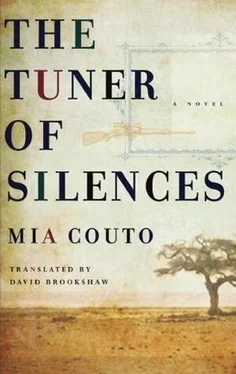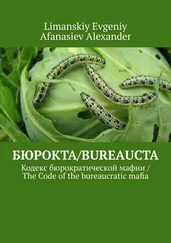His therapy was simple but effective. Every time Ntunzi suffered these convulsions, my father would kneel on his chest and, using his fingers like a knife blade, he would apply increasing pressure on his throat. It looked as if he was going to asphyxiate him but, suddenly, my brother would deflate like a pricked balloon, and the air flowing between his lips produced a noise that was a bit like the braying of our jenny, Jezebel. When Ntunzi was empty, my father would lean right over until he was almost brushing his face and solemnly whisper:
— This is the breath of Life .
He would take a deep breath and blow strongly into Ntunzi’s mouth. And when his son began to jerk, he concluded triumphantly:
— There! I’ve given birth to you .
We should never forget, he stressed. And he repeated, breathless, his eyes defiant:
— Your mother may have pulled you from the darkness. But I have given birth to you many more times than she did .
He withdrew from our room in triumph. Not long afterwards, Ntunzi recovered his sanity and passed his hands right down his legs as if to make sure they were still intact. And that’s how he remained, with his back to me, regaining his existence. On one such occasion, I noticed his back shuddering with sadness. Ntunzi was weeping.
— What’s wrong, brother?
— It’s all a lie .
— What’s a lie?
— I don’t remember .
— You don’t remember?
— I don’t remember Mama. I can’t remember her . .
Every time he had acted out her part in such lively fashion, it had been pure pretence. The dead don’t die when they stop living, but when we consign them to oblivion. Dordalma had perished once and for all and, for Ntunzi, the time of his early childhood when the world had been born along with him had been extinguished forever.
— Now, my little brother, now we really are orphans .
Maybe Ntunzi felt his orphanhood from that night on. But for me, the sentiment was more bearable: I had never had a mother. I was merely the son of Silvestre Vitalício. For that reason, I couldn’t surrender to the invitations my brother directed towards me on a daily basis: that I should hate our father. And that I should wish him dead as strongly as he did.

Whether because of his illness or his despair, Ntunzi’s behaviour changed. Without the false nourishment of his memories, he became embittered, full of gall. His nights began to be taken up with a certain ritual: he would painstakingly pack the few possessions he had in an old suitcase, which he then hid behind the wardrobe:
— Never let Father see this .
First thing in the morning, with the same case resting on his feet, Ntunzi would sit engrossed in an ancient map that Uncle Aproximado had once given him in secret. With his index finger, he roamed again and again over the print, like a canoe drifting drunkenly down imaginary rivers. Then, he would scrupulously fold the map again and place it in the bottom of the suitcase.
On one occasion, while he was locking it, I ventured:
— Brother?
— Don’t say anything .
— Do you want some help?
— Help for what?
— Well, to put your case away . .
Perching on the chair, we pushed the case onto the top of the cupboard while Ntunzi murmured to himself:
— You old son-of-a-bitch, you murderer!

Some nights later, Ntunzi fell asleep, lulled by reading his map. The prohibited guide to journeys slipped and came to rest next to his pillow. That’s where my father found it the following morning. Silvestre’s fury made us jump from our beds:
— Where did you get this filth?
Silvestre didn’t wait for an answer. He tore up the old map, and then ripped it again into ever smaller pieces, on and on, until it seemed as if he was going to shred his own fingers. Cities, mountain ranges, lakes, roads, all fluttered to the floor. The entire planet was dissolving on the floor of my room.
Ntunzi stood there gaping, rooted to the spot, as if his very soul were being hacked to pieces. I took a deep breath and mumbled incomprehensibly. But Father was already leaving, and yelled:
— No one touch anything! Zachary is the one who’ll come and clean up this shit .
Shortly afterwards, the soldier burst into the room, carrying a broom. But he didn’t sweep up. He picked up the little pieces one by one, and threw them up in the air like a witch-doctor casting cowrie shells. The paper flurried and scattered across the floor in whimsical designs. Zachary read these shapes and, after a little while, called me over to him:
— Come, Mwanito, come and see . .
The soldier was sitting in the midst of a constellation of little bits of coloured paper. I went over while he pointed, his finger shaking:
— See here, this is our visitor .
— I can’t see anything. What visitor?
— The one who’s on her way .
— I don’t understand, Zaca .
— Our peace is coming to an end, here in Jezoosalem .

Next morning, Ntunzi awoke, his mind made up: he was going to run away, even if there was no other place. Our father’s latest aggression had led him to this decision.
— I’m leaving. I’m getting out of here, for good .
The case clutched in his hand reinforced the strength of his intention. I ran and seized his hands, begging him:
— Take me with you, Ntunzi .
— You’re staying .
And off he went down the track, with a nimble stride. I went after him, crying inconsolably, repeating amid my snivelling and my sobs:
— I’m going with you .
— You’re staying. I’ll come back for you later .
— Don’t leave me on my own, please, dear brother .
— I’ve made up my mind .
We walked for hours, ignoring all perils. When we eventually arrived at the entrance to the reserve, my heart felt overloaded. I shuddered, terrified. We’d never ventured so far. This was where Uncle Aproximado’s hut was. We went in: it was empty. As far as we could see, no one had lived there for a long time. I still wanted to take a closer look at the place, but Ntunzi was in a hurry. Freedom was there, just a few yards away, and he ran to open the wooden doors.
When the big old doors were fully open, we saw that the much heralded road was no more than a narrow track that was almost indiscernible, overgrown with elephant grass and invaded by termite hills. But as far as Ntunzi was concerned, the little path was an avenue that crossed the very centre of the universe. That narrow little footpath was enough to fuel his illusion that there was another side to the world.
— At last! — Ntunzi sighed.
He touched the earth with the palm of his hand, just as he did when stroking the women that he had invented in his play acting. I fell to my knees and implored him again:
— Brother, don’t leave me all by myself .
— You don’t understand, Mwanito. Where I’m going, there’s no one else. I’m the one who‘s going to be all by myself. . or don’t you believe in your darling father any more?
His tone was sarcastic: my brother was getting his revenge on me for being the favourite son. He pushed me away with a shove, and closed the doors behind him. I stood there, peeping through the cracks in the wood, my eyes full of tears. I wasn’t just witnessing the departure of my only childhood companion. It was part of me that was leaving. As far as he was concerned, he was celebrating the beginning of all beginnings. As for me, I was being unborn.
Читать дальше













